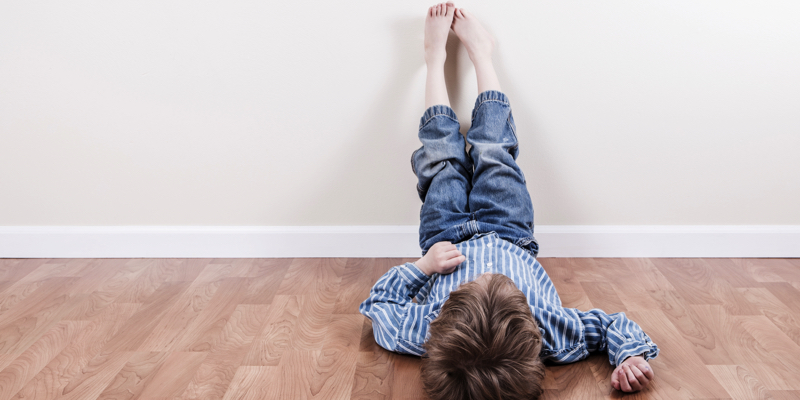Has it happened in your house yet? We’re a few weeks into summer vacation, and the novelty of not having to go to school is probably wearing off for your kids. By our calculations, they’ve already said “I’m bored” at least three times. After all, they are used to being told exactly what to do every day. The pressure is on to figure out how you’re going to provide entertainment for your kids for the rest of summer.
July just so happens to be Anti-Boredom Month, and it’s all about learning to be entertained by more than just consuming technology. We all have smartphones, tablets, computers, and televisions in our homes. This makes it incredibly easy for kids to turn to a screen to combat boredom.
Maybe you’re thinking we’re about to tell you to turn into the perfect Pinterest mom and plan out your kids day with baking, crafts, and museum days. We won’t. While it is great to have some structure in place during the summer break, experts say that parents need to provide some unstructured time, too. We don’t need to “cure boredom,” we need to embrace it.
Boredom is essential for tapping into life skills
New research from toy company Melissa & Doug and Gallup, shows that boredom encourages imagination and creativity. When children are left to their own devices, they’re compelled to be more creative and imaginative in finding ways to amuse themselves. “Giving them opportunities to try things of their own volition builds their sense of discovery and curiosity and helps them explore what brings them joy,” says Melissa, co-founder of Melissa & Doug.
Being bored also helps children with their problem-solving skills because they have to rely on themselves to tackle the “problem” of being bored, according to The School Run.
Boredom also builds confidence and improves mental health. “When they have free time, they can try new things, test their limits and take risks, which will all build their confidence,” Melissa says.
Dr. Vanessa LaPointe for Huffpost writes, “Children need to sit in their own boredom for the world to become quiet enough that they can hear themselves. It is only when we are surrounded by nothing that something comes alive on the inside.”
Mark Oliver, teacher and writer for Mother.ly writes, “when our kids are bored, it helps them find value in their own experiences and develop their own unique worldview, which makes them psychologically stronger for the future.
Children who experience a lack of programmed activity are given an opportunity to demonstrate creativity, problem solving, and to develop motivational skills that may help them later in life. Michael Ungar, family therapist and author for Psychology Today says, “A motivated child is one who is raised to seek new experiences, not one who is endlessly protected from boredom.”
How can parents implement positive boredom strategies?
Hearing the word “bored” is like an alarm for parents. We are taught by society that we need to provide constant entertainment for our kids. However, as we have now learned from new research on boredom, we need to set some healthy guidelines on structured AND unstructured play time.
For most parents, this will not be an easy task. The key is to ease into the following tools, and choose the ones that work best for your family.
- Step back. This is probably the hardest option, but also the most impactful. “Do nothing. Don’t swoop in with an activity idea. Don’t hand them a phone or the remote. Sit on your hands, bite your tongue, and let your kids be. You might be surprised to see just where their boredom takes them,” Melissa writes.
- Team up on it. Be bored together. Show solidarity and face the empty time as a pair. Lay on the grass side-by-side and look up at the boring clouds. On a boring stormy summer day, watch the boring raindrops race down the window pane. Model for your child how to quietly reflect on one’s own thoughts and the world around you.
- Attack it. Encourage your child to create a long, master list (that can continually be augmented) of any and all ways he/she can come up with to fill their blank canvas. Have it be the list to pull out whenever you hear the words, “I’m bored.”
- Make it a game. Encourage kids to turn their boredom into a game. The object? To use their own brainpower and whatever screen-free items they can find in the physical world around them to outwit the boredom. In fact, kids may even enjoy inventing their own games with their own rules to help keep the boredom at bay.
- Create a boredom box. This includes a handful of special items that only come out when there is one of those days with nothing to do. Maybe it includes a special joke book. Or an extra special set of colorful markers. Or a stamp collecting book with stamps. And then once that period is over, the items go back into the box so they retain their specialness.
What have you done to foster a positive boredom outlook for your kids or students? Let us know in the comments!









